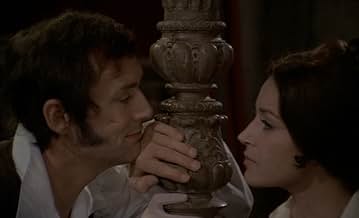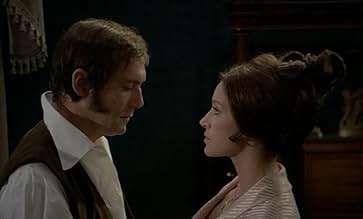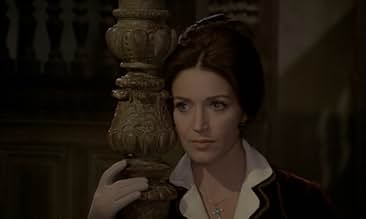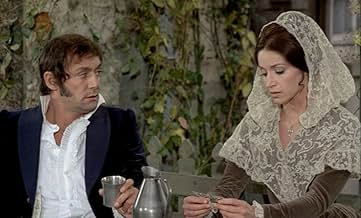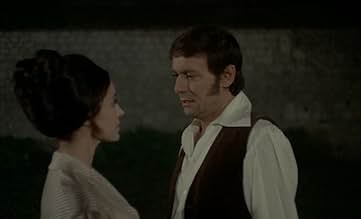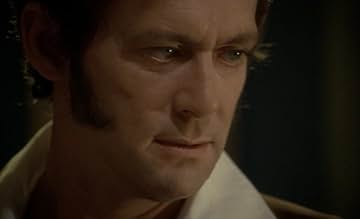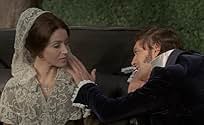1830, somewhere in France. Aurore is a young, beautiful and virtuous widow. She meets Raphael, a man of leisure, a debauchee. Raphael is obsessed by the death, and wait for it by chasing wom... Read all1830, somewhere in France. Aurore is a young, beautiful and virtuous widow. She meets Raphael, a man of leisure, a debauchee. Raphael is obsessed by the death, and wait for it by chasing women and drinking. He first tries to seduce her, but is impressed by her and gives up. But A... Read all1830, somewhere in France. Aurore is a young, beautiful and virtuous widow. She meets Raphael, a man of leisure, a debauchee. Raphael is obsessed by the death, and wait for it by chasing women and drinking. He first tries to seduce her, but is impressed by her and gives up. But Aurore felt in love with him, and tries not to look as inacessible. A romantic drama, with ... Read all
- Awards
- 1 nomination
- Le comte
- (as Maxime-Fabert)
- …
- Director
- Writer
- All cast & crew
- Production, box office & more at IMDbPro
Storyline
Did you know
- TriviaCatherine Brevent's debut.
- ConnectionsReferenced in Çocugumu Istiyorum (1973)
we are introduced to raphaels counterpart, the beautiful and young widow aurore, right at the beginning of the film, when she rushes to a lakeside to view the sunrise. aurore also has a group of young girlfriends, but is again the oldest of them and also the only one who has already been married before. but she soon explains that the marriage was arranged and she has never loved her husband or any other man.
at an official ball aurore and raphael are introduced. contrary to all other women, aurore brushes raphael aside and leaves without really taking notice. he seems impressed and his interest is piqued. he pursues her to church and they spend their first few hours visiting a hospital (her choice) and a wine bar (his choice). aurore soon notices raphaels world-wariness and pities him, which of course isnt the reaction he was hoping for. as a sort of revenge he meets her later at her house and tries to rape her. again, aurore senses the right way to discourage him by telling him that she "wont die" from the rape since shes been married before anyway. its a brillian scene because it shows their opposite way of thinking and the irresistible force that that opposition creates. both still employ their usual tactics, hes the seducer, she is the very religious widow. but as soon as raphael left, aurore finds she is nonetheless aroused by her first encounter with real sexuality and passion.
from then on their parts begin to shift, because aurore realizes that she is indeed in love with raphael and pursues him with energy. he on the other hand maintains his debauchee lifestyle and tries to distance himself, even by humiliating aurore.
still, the whole movie is a womans fantasy insofar as raphael does "the right things" in the end. after shaming aurore at his house, he nonetheless comes after her and takes her home like a real gentleman. he comes after her again in the most moving scene of all, when he even kneels in front of her as if to worship her, since she does indeed become his queen. his declaration of love is the simple fact that he does not sleep with her, since that is his only way of demonstrating her uniqueness. aurore, on the other hand, suffers because shes not only in love but also passionately desires him.
the story is constructed so intelligently that the whole concept of raphael representing night and aurore representing day is pursued with determination and the ending is therefore unhappy and dramatic. its grand, its operatic, its greek tragedy all in one.
memorable scenes in which standard situations between man and woman are suddenly contradicted by unconventional dialogue is further proof that a woman was responsible for the screenplay. neither of the two main forces is simplified and all the clichees are used to present a fresh and daring view. the fact that the movie is a period film set at the beginning of the 19th century helps to keep that strict structure and makes the ending more resonant with well known romantic fates from that time.
The actors are simply great, the casting spot-on. maurice ronet became world famous as the suicidal young poet alain leroy in louis malles film "the fire within` in 1963 and as raphael he perfectly embodies the flamboyant but tired rake. He dominates the screen whenever hes in a scene, as does francoise fabian as the beautiful aurore. Both ronet and fabian are so perfectly cast and look at each other with such longing, one is instantly drawn into their story, moved to tears by their impossible situation, which is lifted almost into mystical heights only to remain true to the story.
This movie is a moving experience in every respect and all the forces of the screenplay, the direction and the actors make it an intelligent masterpiece, which is unfortuantely hardly known or seen anymore.
If you find it somewhere, go and see it! Dont be disturbed by the dated look, the story is as timeless as any good mythology.
- eb_redbaron
- Nov 3, 2002
- Permalink
- How long is Raphaël ou le débauché?Powered by Alexa
Details
- Release date
- Country of origin
- Language
- Also known as
- Raphael or the Debauched One
- Filming locations
- Production companies
- See more company credits at IMDbPro
- Runtime1 hour 40 minutes
- Sound mix
- Aspect ratio
- 1.66 : 1
Contribute to this page


